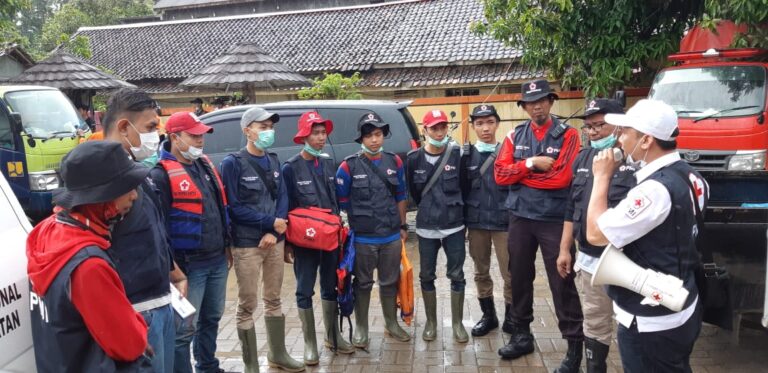“Korps Sukarela” or “Volunteer Corps” has emerged as an effective pressure for network development and humanitarian efforts globally. The concept of voluntary service isn’t always new; it dates returned to ancient instances whilst people got here collectively to support each other in times of need. However, the prepared and systematic approach of volunteer corps in modern society has significantly amplified their effect. This article explores the evolution, importance, and multifaceted contributions of volunteer corps, focusing especially on their function in Indonesia, wherein the term “Korps Sukarela” holds an outstanding location.
Historical Background
The concept of volunteer corps may be traced again to diverse cultures and civilizations. In ancient Greece, residents might volunteer for navy carrier and community tasks. Similarly, in medieval Europe, volunteer corporations were fashioned to offer useful resources in the course of wars and plagues. However, the established formation of volunteer corps, as we apprehend them today, started to take form in the 19th and 20th centuries. The Red Cross, hooked up in 1863, is one of the earliest examples of an organized volunteer corps devoted to humanitarian resources.
Emergence of Korps Sukarela in Indonesia
The period “Korps Sukarela” specifically refers to prepared volunteer agencies that perform within numerous sectors, together with catastrophe response, healthcare, schooling, and network improvement. The idea won considerable momentum at some point during the Indonesian National Revolution (1945-1949), when volunteers performed an important function in assisting the independence movement via medical useful resources, logistics, and community mobilization.
Structure and Organization
Modern Korps Sukarela in Indonesia are usually well-based entities with clear missions, goals, and operational techniques. These businesses frequently collaborate with authorities companies, non-governmental agencies (NGOs), and global bodies to maximize their reach and effectiveness. The structure typically consists of:
Leadership and Governance: A center group of leaders who oversee operations, make strategic selections, and ensure compliance with rules.
Training and Development: Comprehensive training applications for volunteers to equip them with essential capabilities and knowledge, ranging from first resource to disaster control and community engagement.
Field Operations: Teams are deployed within the field to perform precise obligations such as disaster alleviation, healthcare services, academic applications, and environmental conservation.
Monitoring and Evaluation: Continuous assessment of sports to degree effect, make sure accountability, and improve future tasks.
Key Areas of Impact
Disaster Response and Relief
Indonesia, being liable to herbal failures consisting of earthquakes, tsunamis, and volcanic eruptions, has a vital want for powerful catastrophe reaction mechanisms. Korps Sukarela plays an important position in this area using providing instantaneous help, engaging in seek and rescue operations, dispensing relief substances, and supporting rehabilitation efforts. Their presence on the ground often bridges the space between affected groups and formal aid corporations, making sure well timed and efficient delivery of aid.
Healthcare Services
Volunteer corps in Indonesia make contributions considerably to the healthcare region. They organize medical camps in far-flung regions, offer free health take-a-look-at-ups, and behavior focus campaigns on hygiene and ailment prevention. During the COVID-19 pandemic, Korps Sukarela was instrumental in disseminating statistics, dispensing masks and sanitizers, and supporting vaccination drives. Their efforts now not only alleviate the burden on the healthcare system but also promote more healthy groups.
Educational Programs
Education is a cornerstone of network improvement, and Korps Sukarela was at the leading edge of various academic initiatives. Volunteers often educate in underprivileged regions, run literacy programs for adults, and provide vocational schooling to empower people with realistic competencies. These packages help bridge academic gaps, reduce dropout prices, and create opportunities for socioeconomic development.
Environmental Conservation
With developing concerns over environmental degradation and weather exchange, volunteer corps are an increasing number of involved in conservation efforts. In Indonesia, Korps Sukarela takes part in tree planting campaigns, seaside easy-ups, wildlife safety tasks, and attention drives on sustainable practices. Their sports no longer only protect natural resources but also foster a culture of environmental stewardship amongst local groups.
Social and Economic Empowerment
Beyond immediate alleviation and offerings, volunteer corps consciousness on lengthy-term network improvement through selling social and economic empowerment. This includes supporting small companies, facilitating get entry to to microfinance, and advocating for gender equality and human rights. By addressing the root reasons of poverty and inequality, Korps Sukarela contributes to constructing extra resilient and self-enough communities.
Challenges and Opportunities
Despite their widespread contributions, volunteer corps face numerous demanding situations. Limited investment, lack of resources, and logistical constraints can bog down their operations. Additionally, making sure the protection and well-being of volunteers, specifically in high-hazard environments, remains a crucial subject. However, these demanding situations also present possibilities for growth and innovation.
Enhanced Collaboration: Strengthening partnerships with authority agencies, NGOs, and personal quarter entities can offer volunteer corps the assets and aid needed to scale their operations.
Capacity Building: Investing in the education and improvement of volunteers can enhance their skills and effectiveness, allowing them to tackle complicated troubles extra efficiently.
Three. Technological Integration: Leveraging the era for facts collection, conversation, and coordination can improve the performance and impact of volunteer activities.
Public Awareness: Raising recognition approximately the significance of volunteerism. Attract extra individuals to sign up for volunteer corps, expanding their attain and potential.
Conclusion
Korps Sukarela exemplifies the energy of collective action and the profound impact that volunteers will have on society. In Indonesia, these volunteer corps have turned out to be indispensable to disaster reaction, healthcare, education, environmental conservation, and community development. As they hold to adapt and adapt to emerging challenges Their role in shaping a greater equitable and resilient future remains as crucial as ever. By fostering a lifestyle of volunteerism and investing in the growth and sustainability of volunteer corps. We can harness the full capacity of these dedicated individuals to create fantastic and lasting alternatives.
